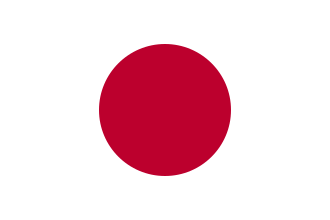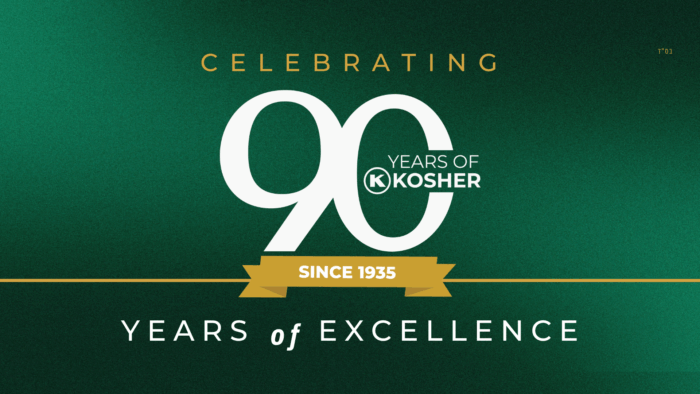
How to tell when there’s ROI in kosher certification, and when not to bother.
Yep – you’re reading a post from a major, international kosher certifier here – that’s no secret. This is our arena, and that’s precisely why you should take our advice. So in this post we’ll cover the telltale signs that you should steer clear of a kosher certifier (we’re not mentioning any names!) and when there’s actually an ROI in kosher certification.
The Big Guys and the Little Guys.
There are so many kosher certifiers out there – in the thousands. And that number increases each year. They span from globally recognized ones like OK Kosher (that’s us), to the one-Rabbi-shows inspecting local eateries for their congregants. To be clear, we don’t know any kosher certifier to be untrustworthy or scammers. But there are tiers, and major differences among the ranks.
Identify Your “Why”
Think about what brought you to consider kosher certification in the first place. For most, it comes down to the need to satisfy a customer, or the market in general. If that’s the case for your company, then by demonstrating to consumers that you’re kosher – to whatever level of assurance they need – is where you’ll get your ROI from kosher.
So, how can you know and meet the level of assurance kosher consumers and manufacturers look for? Put differently, how can you tell when a kosher certifier will return your investment?
Here are the factors you’ll need to consider in a kosher certifier, which we’ll cover in this post:
- Global Reputation – Internationally, regionally, and within both B2B and consumer spheres.
- Kosher Standards – It’s technical, but we’ll highlight the basics.
- Technology and Database – Reducing legwork, cost and human error.
- Professional Workforce – Encompassing both quality and quantity.
- Client Service and Support – Getting 5-star amenities vs. scrapping it together on your own.
Now, let’s have a deeper look into the steps you need to take in determining a worthwhile kosher certification provider.
Pick a Reputable Organization
This is an easy one.
You know consumers need assurance that a product is kosher. Because if ingredients were the beginning and end of what makes something kosher, then there would be no real need for third-party certification. We’ve gotten calls before from companies asking for permission to use the OK symbol without setting up a program in their facility at all. They say “All the ingredients are kosher,” and figure it’s just a matter of paying a fee and signing off on the OK trademarked symbol. But for the above reason (and several others), this never flies.
Consumers seeking kosher products are generally aware of the various kosher symbols and the organizations they represent. As always, consumers have influence through their purchasing decisions, which is how demand develops in the B2B space as well. Simply put, retailers ask for the major kosher certifiers, because the consumers do. And in turn, manufacturers demand the more widely known kosher certifiers, because the retailers do. So then the ingredient suppliers follow suit and get certified according to customer demand.
Again, this is all because consumers know what the certifiers represent, and their standing in the global community. Kosher agencies don’t just win a reputation because they’re big and widespread. This leads us to our next important checkbox.
Invest in Top Kosher Standards
There is no more significant factor in building a kosher certifier’s reputation than its standards. As a regulatory professional, or a pro in the food and beverage industry, you know how it goes. The most successful brands are the ones who deliver what consumers truly want. When it comes to certifications, there’s no exception. Part of the public’s wisdom on the difference between certifiers is knowing the difference between ones with low or average standards vs. ones with high ones. As our late CEO and Kosher Administrator, Rabbi Don Yoel Levy, put it:
“The kosher agency’s responsibility is first to Hashem [G-d], then to the consumer, the company, and lastly to itself.” – The OK Kosher Spirit Magazine, fall 2010.
Our responsibility to above refers to those kosher standards, which come straight from Torah Law. That should be any kosher certifier’s top priority. Beyond that, we hold ourselves responsible to the consumers that rely on those standards. Only once the consumer’s expectation is tended to do we prioritize our organization’s image.
So, like when making any decision about developing your products, do your research in the consumer trenches. Dig deep and ask questions about what people want to see in stores, and which kosher certifiers represent the standards they have for their dietary lifestyles. Let consumers be your guide so your time and monetary investment will pay for itself many times over. Be mindful that, to the average consumer, nothing represents kosher better than the bold letter K in a circle (our international trademark) which only represents a product certified OK Kosher.
No picnic
Disclaimer: often, high standards come paired with other add-ons, like detailed data submission, higher visit frequency, rejection of certain raw materials, or even a higher price tag. Yes, sometimes the most professional service necessitates collaboration on the client’s part. But if your facility were already kosher to the highest standard available, you wouldn’t need us, would you?
Oh, and speaking of data submission…
Select Robust Technology and an Extensive Database
You may have found your way here after working with another agency. Maybe their not-so-recognized kosher symbol or certificate was rejected by a retailer. Or perhaps during the onboarding process, you were told an ingredient couldn’t be approved and, without deep knowledge of kosher certifiers, you felt abandoned in selecting a replacement.
It’s happened to both novices and pros alike. We’re sure that the contact person really did want to help, but wasn’t equipped to. The time it would have taken them to research and select approvable options for the replacement ingredient was probably more than they could spare.
A large and established kosher agency has the right tech stack to support you in the entire process. Ingredient sourcing can be a tall task at the onset of certification. Similarly, as you add new products or deal with supplier issues down the line, you’re likely to need or want assistance with sourcing new ingredients. If an ingredient is rejected, a possible replacement is just a few clicks away for us, saving you a tremendous amount of time and effort. Furthermore, if your ingredient is highly specialized, our Rabbis have the industry experience and contacts to dig in and find a good match.
And that’s all the more reason to…
Go With a Large, Expert Staff
As you can see, the rabbis and qualified professionals you’re working with exemplify the caliber of kosher certifier you’re dealing with. This pertains to both quality and quantity.
Like any professional, some rabbis have the education, experience, and smarts to strategize and plan for the best outcome possible. A kosher certifier that’s dedicated to hiring the best, well-known authorities in kosher law will always be a cut above the rest.
But what about those one-rabbi shows, you might be wondering? Couldn’t they theoretically be just as qualified as a rabbi working for a larger certifier? Of course, almost any learned and pious rabbi with kosher experience can set out on his own to provide kosher certification with integrity. He may have high standards, but he’ll also need a workforce to keep it all running smoothly and accurately. It’s nearly impossible to uphold high standards without many, high-level rabbis and support staff to maintain it all. To support a high-level program, you’ll need a kosher certifier with a large team of Rabbinic Coordinators and an extensive network of field reps. That’s not to mention the administrative assistants, trip planners, bookkeeping professionals, IT staff, data analysis and entry personnel, managers… you get the idea.
Remember, we oversee the certification and monthly inspection of thousands of plants in 93 countries, as well as hundreds of field representatives. Without that base, you can be sure the program is lacking in either standards, consistency, service, or all of the above.
Which brings us to our next important point. You should always…
Choose the Best Client Service and Support
As we discussed above, ample support staff is a key component of a high-quality kosher certification program. One of our most prized departments is our team of incredible account representatives. Each company that becomes certified with OK Kosher gets assigned to a dedicated contact person we call the Account Rep for the duration of their certification. We’ve found this relationship to be one of the most important reasons behind client happiness, and the longevity of each certification.
Embarking on such a long-term path in your company’s growth begs this level of commitment. Both from your company and its kosher certifier. Your investment in kosher will pay back beyond measure when things are streamlined, and communication flows. Your kosher certifier should provide you with someone responsible for making your program exactly what you need it to be. If not, you should probably question why.
So, Is Kosher Certification a Worthy Investment?
Let’s conclude with the truth: Kosher certification is worth the time, effort and, yes, the cost too. But only when it’s done right. We’re hoping this helped you understand when kosher is worth it and when to shop around. By checking all of the above boxes, you’ll have the guideposts you need to make a sound decision for your company, and get that ROI it needs from kosher.
The information presented in this blog post is based on research, general knowledge, and/or the author’s understanding of the subject matter. This blog is provided for informational purposes only and should not be relied upon by the reader or considered as professional advice. For specific guidance on any given topic, the reader should consult a qualified professional in the given field. OK KOSHER DISCLAIMS ANY LIABILITY FOR ANY LOSS OR DAMAGES RESULTING FROM RELIANCE ON THE INFORMATION PROVIDED IN THIS ARTICLE.


 EN
EN  ZH
ZH  KR
KR  BR
BR  ES
ES  IN
IN  IL
IL  JP
JP 



